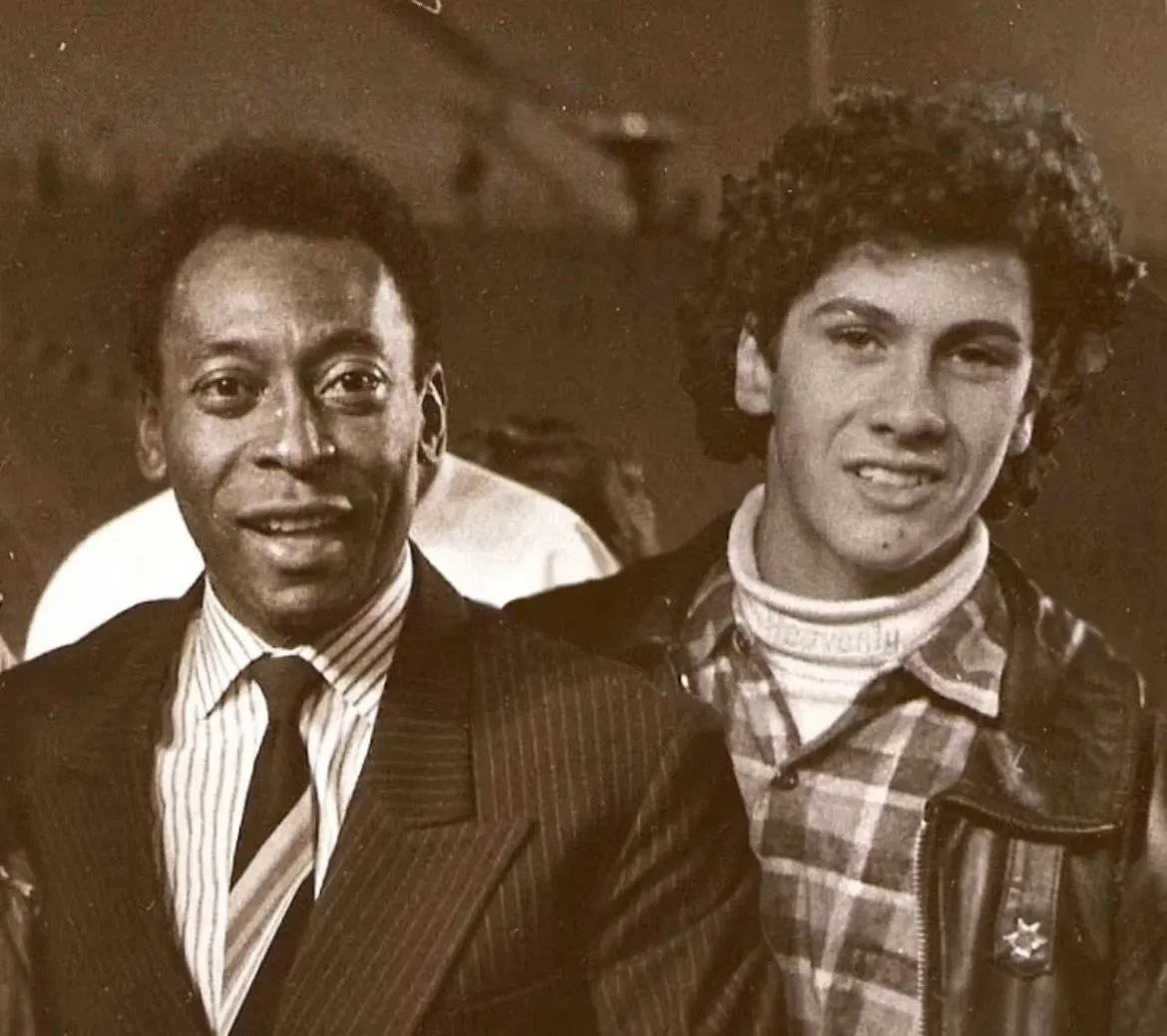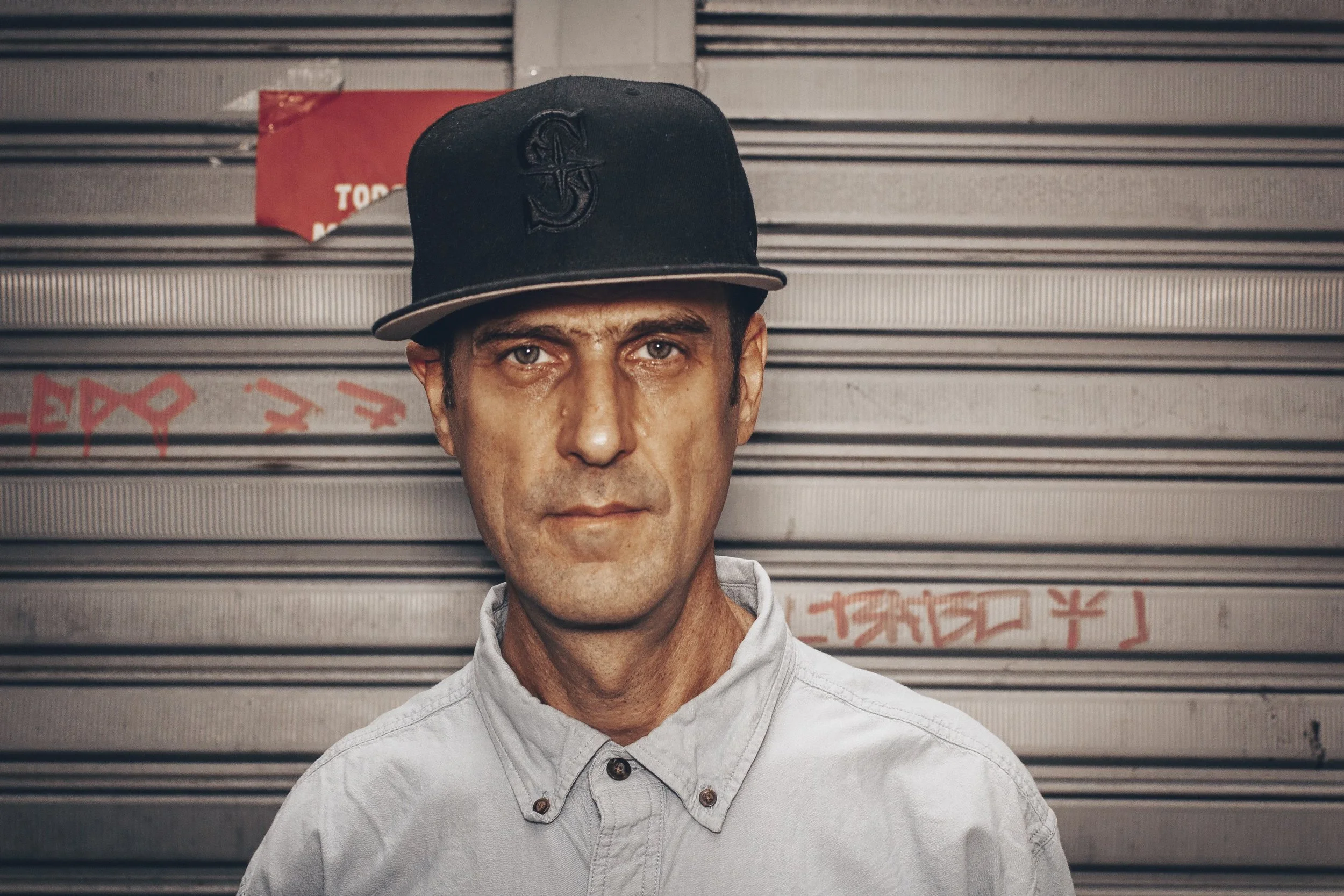Sergio Muñoz With Bo Anderson: Wealth, Legacy & The Next Generation
Baby Boomers currently control over half of the U.S. stock market, $17.79 trillion, according to The Motley Fool. Gen X controls another $8.05 trillion. As these generations grow older, estate planning and inheritance will drive what’s expected to be the largest wealth transfer in history. But when, and how will it unfold?
In this Made in America feature, Sergio Muñoz sits down with Bo Anderson for a perspective you may not have heard before, exploring how timing, identity, and intention shape the legacy we leave behind and whether delayed inheritance truly serves the next generation.
In this conversation, Sergio Muñoz invites us to consider not just what we pass on, but why and when it matters.
Special feature by Sergio C. Muñoz
This interview was originally featured on Intelatin, LLC substack
This interview was produced by Sergio C. Muñoz at Intelatin, LLC. It is distributed by ZZK Culture. Special thanks to Wil Dog of Ozomatli and to PBS Studios (KLCS) for their pilot feature on our effort for the financial wellness of musicians. AMA: sergio@zzkrecords.com
In my Mexican household, Brazilians were considered super-powered. It seemed that they could do anything better than everybody else. My hero as a child was one Brazilian in particular, Edson Arantes do Nascimento (Pelé) - Here I am at age 14 following him around the Coliseum in downtown Los Angeles.
Pele and Author
Additionally, there was Antonio Carlos Jobim, Joao Gilberto, Gilberto Gil, Roberto Carlos, Caetano Veloso & Seu Jorge in music. In literature, there was Paulo Freire. In film, Sonia Braga, Fernanda Montenegro and Regina Casé. In modeling, there were so many goddesses but Cintia Dicker was my favorite. In architecture, there were a few standouts like Oscar Niemeyer. Mother Nature in Brazil was exponentially considered the Queen of the Earth. If you can put a culture on a pedestal, I did just that for Brazil and Brazilians. I used to tell people that I would one day have a home in Búzios.
Still to this day, I feel something inside me when I listen to the Brazilian touch in music. I remember first hearing Bo’s Piloto de Fuga & No Balanço da Canoa and I found the music to be extraordinary, and uniquely Brazilian. My homies at ZZK Records put out an album and it featured a new song by Maga Bo so I called up the head of the label and asked him to introduce me. He did so and this month we talk to Bo Anderson, a naturalized Brazilian musician born in Seattle, Washington.
Bo Anderson
Sergio: Please describe your childhood home?
I lived in a two story brown house made of wood in Bellevue, Washington. It was big, beautiful and empty. A silent house with not very much life in it. Surrounded by a nice garden. I lived there with my mom, dad and brother. Mostly just my brother and me, we were latch key kids. My parents owned the house.
Sergio: When did you begin to fantasize about prosperity and did you tie your vision to an image of a home?
I didn’t think in terms of prosperity because we had prosperity. My parents were very well-off and all of our material needs were met including food, clothes, shelter, healthcare and a good school but the home was missing warmth, compassion, presence and care. Financially and materially, everything was taken care of. There was nothing there for me in that house so at the age of 18, I priortized my music. I found love through music and pursued a nomadic life and left home and never came back. I play a whole bunch of instruments badly but I am mainly a percussionist, and a DJ. I set out to travel the world and I ended up, very purposely in Rio de Janeiro, Brazil. Music, warmth, beach, ocean, mountain, forest, nature and city mixing together. Rio is very interconnected with nature. I arrived in Brazil in 1999. I think I must have had the idea that home is where the heart is and so I never tied my future to a property.
Sergio: What inspired your fantasy?
I desired love and affection. To be interconnected with Nature. If I am honest with myself, I would probably be interested in the Chinese perspective of not being able to own private property, I would prefer that. In Brazil, it doesn’t work that way. After over thirty seven years of putting my rent into somebody else’s pocket and not building equity, I do think that I would buy if I could afford to buy and integrate myself as a homeowner in the community. As it is right now, I do not have the financial means to own real estate.
Sergio: What does your home look like present-day?
I was married in 2019 and we live in a thirteen story apartment building in Rio. I live on the twelfth floor. In Brazil it would be considered middle to upper class but its very humble by other comparatives. If you compare it to my childhood home, it is not upper class. Our windows look out over the favela with a hill and a forest. On the other side of the building, the windows look out over the courtyard of the building and so that side of the building is much more valuable than ours. On our side, you can hear loud gunfights pretty consistently. You do need to be careful on account of the bala perdida. My wife and I went house shopping in the favela and we found a place we could afford next to a Boca de Fumo, a place where the drug traffickers hang out - no one does drugs there and they may or may not sell drugs there but they are heavily armed, so it’s a more likely place to have a gun fight with the police. We decided it was too dangerous. In our safe apartment complex, we don’t have an issue with those realities so its a trade-off. We do weigh our options to see if buying in the favela is an option but we are relatively happy with where we are at the moment.
Sergio: Is there a connection between your former fantasy and your current reality?
When I was young and beginning my journey as a creator, I wanted to be able to travel the world in the function of music. That has been my reality. For many years, my home was very itinerant. I spent time in Europe, India, Africa and I have homes and families spread out all over the world. Leaving Brazil to buy a home in a more affordable place or moving back to the states would change our lifestyles which is not an option. My wife is also a professional musician. It is not interesting to us. We are invested in the city of Rio and the community. Being able to live here has been more important to us than owning a home.
Sergio: Where is Maga Bo in the Brazilian canon of music?
I am on the periphery of the Brazilian canon. I am a naturalized Brazilian. I have two passports. I speak Portuguese. I've lived in Brazil for 24 years. I have a Brazilian wife. I vote in Brazil. I pay taxes in Brazil. I can tan and I wear local clothes but I am still considered a foreigner. There's no hiding it. Everybody knows. I will never be considered Brazilian by Brazilians. My face is just super gringo. When I first started out, I found a place in the scene because I was a foreigner. There was interest in me. And because so, I have been able to tour over 60 countries in the world with my music. Have you heard of; Vira-Lata?
(Sergio’s Note: This term originated from Nelson Rodrigues' description of the Mongrel Complex (Complexo de Vira-lata) to explain the people's tendency to view their own country in a negative way and/or prefer what is foreign (especially American.)
Sergio: I wish we could talk in-depth about Vira-Lata but given what you said, let’s talk about inheriting wealth. Have you had conversations with your parents about inheriting any of their wealth as you are aged 53 now?
Yes, they have told me that I will be inheriting something but they have not been willing to invest in my wife and I in becoming homeowners and we have asked for the help directly. And yes, my decisions would be affected by an inheritance and I think that they were financially capable of helping us, but they never did. It is really unfortunate. They use it to manipulate me so that I would live closer to Seattle but since we didn’t have a relationship, it never interested me.
Sergio: This is an important issue in the financial industry: The age at which an inheritance can be most helpful for the next generation. As an example, according to The Motley Fool, Baby Boomers have an estimated 56.3% of the entire stock market, valued at $17.79 trillion. For Bo, a Gen X, they own 25.5% of stocks, worth $8.05 trillion. At some point, there will be an enormous transfer of wealth including stocks and real estate but the question becomes: At what age will that transfer happen? When you are in your fifties and your lifestyle is already established, like Bo’s, you typically wouldn’t be hopping on the economic ladder that late in life.
Read the full feature: substack
Watch the full interview: Sergio Muñoz with Bo Anderson on YouTube
For more inspiring stories follow Sergio C. Muñoz on LinkedIn or subscribe to his Intelatin, LLC substack.
Explore More Stories From America’s Small Business Community: Made in America


